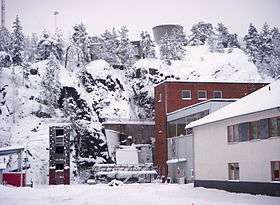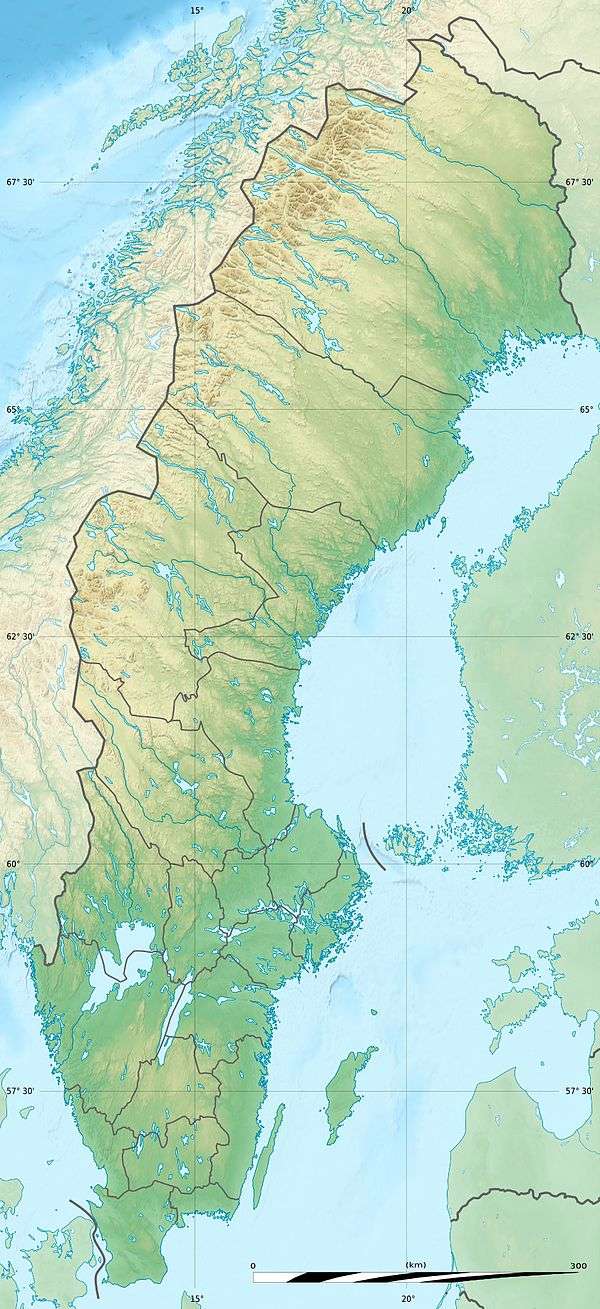Ågesta Nuclear Plant
| Ågesta Nuclear Plant | |
|---|---|
 | |
 Location of Ågesta Nuclear Plant | |
| Country | Sweden |
| Coordinates | 59°12′21.68″N 18°4′58.34″E / 59.2060222°N 18.0828722°ECoordinates: 59°12′21.68″N 18°4′58.34″E / 59.2060222°N 18.0828722°E |
| Construction began | 1957 |
| Commission date | 1 May 1964 |
| Decommission date | 2 June 1974 |
| Owner(s) |
Vattenfall |
| Operator(s) |
Vattenfall AB, Barsebäck Kraft AB |
| Power generation | |
| Units decommissioned | 1 x 12 MW |

The nuclear power station Ågesta (ASEA) was the first Swedish commercial nuclear power plant. Construction started in 1957 and ended in 1962, operations began in 1964 and continued until 1974. The station primarily provided district heating (68 MW) for the Stockholm suburb Farsta, as well as a small amount of electricity, 12 MW. It is widely assumed that the underground reactors had military purposes, being able to produce plutonium.[1]
The companies Stockholms Elverk and Statens Vattenfallsverk were responsible for the building of the Ågesta plant. Before it was finished, another larger reactor, the R4 nuclear reactor was built at Marviken. The R4 reactor was intended for both electricity and plutonium production but it was cancelled in 1970.
The Ågesta reactor, with 10 MW, was much smaller than the later Swedish reactor types. The reactor was part of a project called "the Swedish line" (Svenska Linjen), an international initiative to use natural uranium (not enriched) for fuel in commercial power plants. The shutdown of the plant was mostly a result of low oil prices and poor economics.
Ågestaverket
Ågestaverket, also known as R3, was the third nuclear reactor built in Sweden. Heavy water moderated and fueled with natural uranium, the project was started in 1957, and the underground reactor was used for heating a suburb of Stockholm from 1964 to 1974, plus some power generation. It produced 105MWt, and 10MWe.
See also
References
- ↑ "Neutral Sweden Quietly Keeps Nuclear Option Open", The Washington Post, 25 November 1994.
